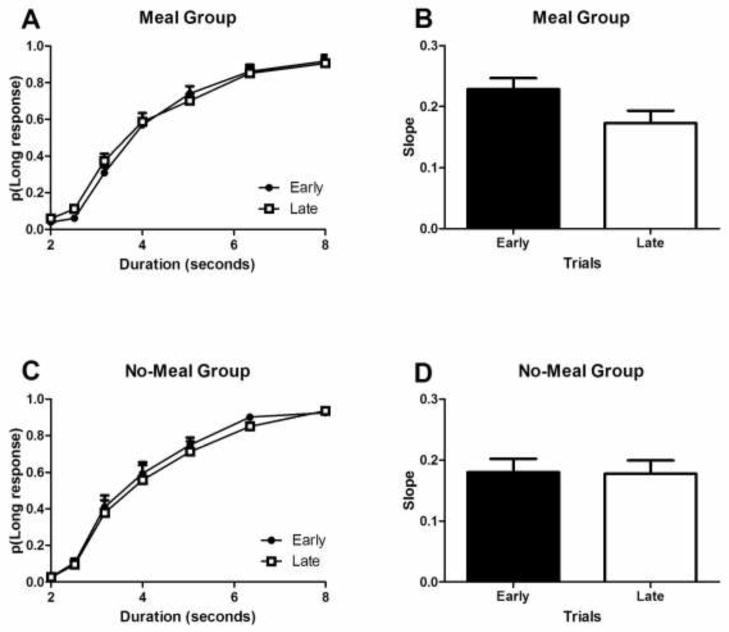Fig. 1.
Anticipation of a meal reduced sensitivity to time in the ongoing interval-duration classification task near the meal time. Sensitivity to time in the ongoing task declined near the meal time in the meal group but not in the no-meal group. The probability of judging an interval as long (A and C) increased as a function of the interval duration. Sensitivity to time, as measured by the slope of the probability function (B and D) declined immediately before the end of the daily session in the meal group (A and B) but not in the no-meal group (C and D). (A-D) Error bars indicate SEM.

